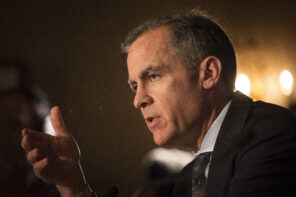We’re halfway through 2019 and yes, ride-services are still fighting in Montréal. It still comes down to the one and only, the iconic black and white: Uber. Six years since their arrival in the city, the emotions between Uber and taxis are finally reaching their boiling point. Today, it seems that just mentioning the word “Uber” to a taxi driver could spur a week-long strike, something taxi drivers have been doing more and more frequently in 2019. From abandoning their cars in the middle of the road in protest, to intentionally blocking STM buses, to even egging their Uber counterparts, Montréal’s existing taxi services have always been at odds with Uber, and have stood as a major risk factor for the company’s sustained presence in the city. But today, Uber’s future in Montréal is more in question than ever for a different reason, as their problems no longer only stem from the city, but from their own drivers.
Globally, Uber stands as a highly successful company, valued at about $92 billion. On May 20th, 2019, a decade after its inception, Uber finally made its Wall Street debut (stock name “UBER”), making an initial public offering of 180 million shares of common stock. A major stepping stone for almost any company, Uber’s IPO stands as a bright spot for the company’s investors to profit immensely.
But for drivers in Montréal, May 20th served a different purpose. That was the day when half of the 25,000 drivers in the city uninstalled their Uber apps and took to the streets, participating in a 24-hour strike to protest what they called “poverty wages.” According to Rafik Hanna, a member of the Professional Association of Uber Drivers, the company has been consistently scraping more and more of a given driver’s fares per ride. And with drivers responsible for their car’s insurance, lease payments, toll and permit fees, gas, and maintenance, it’s easy to see why drivers might be angered by any cut to their fares.
May 20th served a different purpose. That was the day when half of the 25,000 drivers in the city uninstalled their Uber apps and took to the streets, participating in a 24-hour strike to protest what they called “poverty wages.”
“Drivers built these billion dollar companies and it’s plain wrong that so many continue to be paid poverty wages while Silicon Valley investors get rich off their labour,” said Brendan Sexton, executive director of the Independent Drivers Guild, “All drivers deserve fair pay.” To make matters worse, with fuel prices rising across Quebec, drivers are in an even more precarious position.
To add on to these challenges, Uber must also deal with evolving and more targeted regulation on its activities by the Québec government. With the possible imposition of Bill 17, which will work to deregulate the taxi industry and allow them to set variable fare rates to better compete with the company, Uber risks losing their leg up on Québec taxis. The bill also includes reparations to the taxi industry to the tune of $800 million, or about $45,600 to each driver, meant to soften the blow taken by Québec taxi companies since the arrival of Uber. While taxi drivers might dislike this bill as much as Uber, given that the reparations are 500 million below what they desire, it certainly levels the playing field between transportation services. This check is one of many that Québec taxi companies have received in recent years, but is by far the most impactful given that if the bill goes through, taxi companies will finally have the ability to set and charge their own rates.
With the possible imposition of Bill 17, which will work to deregulate the taxi industry and allow them to set variable fare rates to better compete with the company, Uber risks losing their leg up on Québec taxis.
Moreover, with the creation of companies like Eva, the newly touted “socially acceptable” ride service in Montréal, Uber is seeing more and more formidable competition. This is especially damaging as the reputation Uber has today is one of apathy and unfairness towards their drivers. While this form of competition is nothing new for the company, it comes at a time of strong instability among Uber’s employee base. More importantly, it is a time where Uber’s standing within the city of Montréal is becoming more and more uncertain.
While uncertainty for Uber is nothing new in Montréal as the company has threatened to leave the city multiple times over the last three years, their current operational lease is set to expire this coming October at a time where it seems matters could not be worse. And so, with their drivers’ recently renewed anger, Québec’s deregulation of the taxi industry, and stronger competition than ever, one must wonder: is Uber’s time in Montréal coming to an end?








